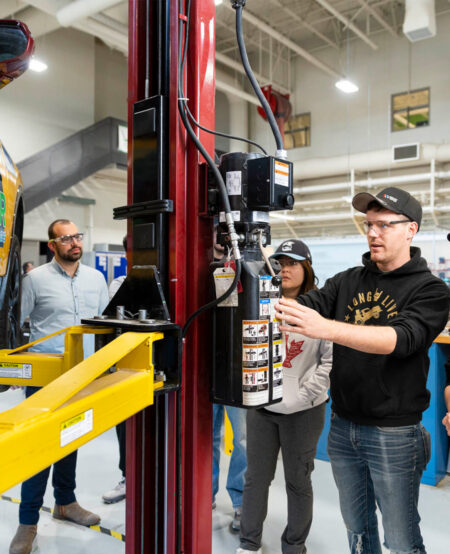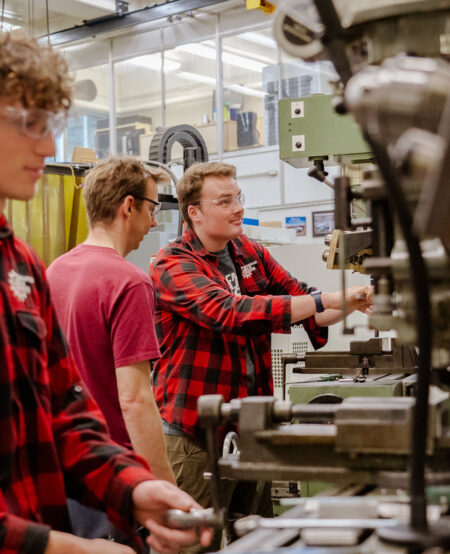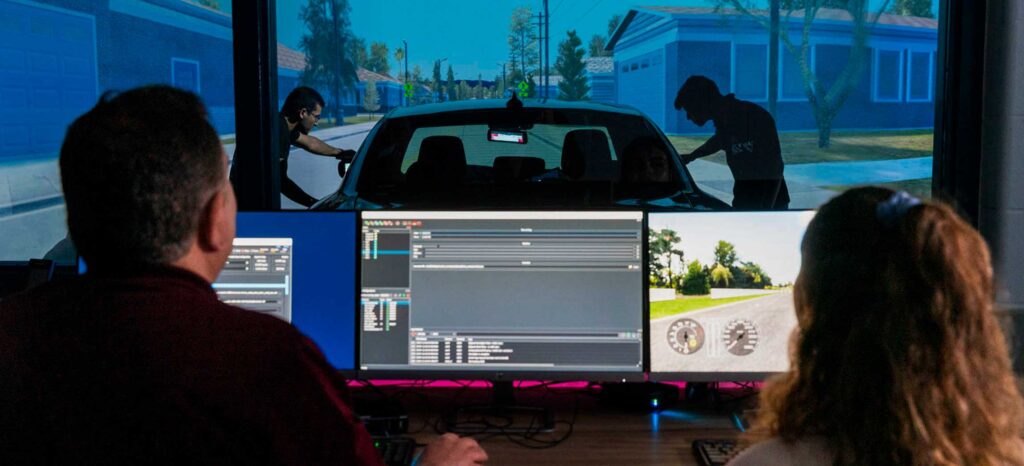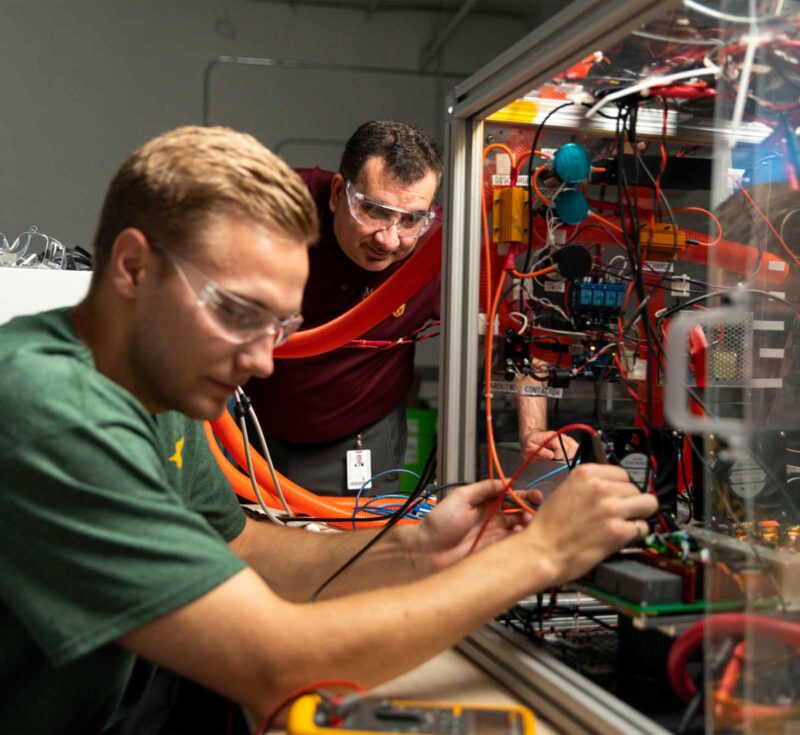- Length
- 4.5 years
- Degree
- Bachelor of Technology (Co-op Mandatory)
- Program
- Bachelor of Technology
- Options
Program highlights
In 4.5 years, students graduate with a degree from McMaster University, an advanced diploma in Mechanical Engineering Technology and Certificate in Business from Mohawk College, and 12 months of co-op work experience.
Curriculum
Learn about the construction, operation, design, and manufacturing of modern vehicles.
Evaluation
Evaluate current and future automotive propulsion technologies, advanced combustion systems, hybrid powertrains, and alternative fuel vehicles.
Problem-solving
Use engineering fundamentals and state-of-the-art software to identify and solve problems related to the machine components and assemblies used in the automotive industry.
Management skills
The program also integrates core business and management skills and is an Accredited Business Degree. Read about ACBSP Accreditation here.
BTech is a unique program because it is more hands-on and we focus on learning technical skills. I chose McMaster because of this program – it is different and fits my learning style and personality. You won’t find another program like it.
Admission requirements

Careersand further studies
Sample careers:
- Design Engineer, Honda Manufacturing
- Management Associate, US Steel
- CAD/CAM Programmer, John Crane
Further study:
- MEng Design, School of Engineering Practice & Technology, McMaster University
- MASc – Mechanical Engineering, School of Engineering & Applied Science, McMaster University
- MBA, DeGroote School of Business, McMaster University

Need moreinformation?
How to apply
Understand every step, from applying, to accepting your offer and joining us on campus!
W Booth School of Engineering Practice and Technology
We blend our focus between academic theory, engineering practice and understanding how to leverage technology to create solutions and produce value for society.


